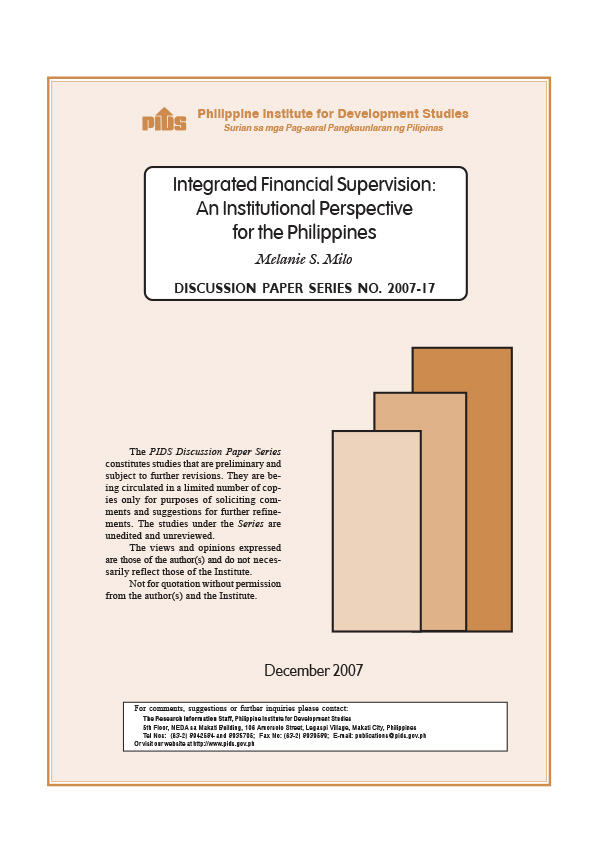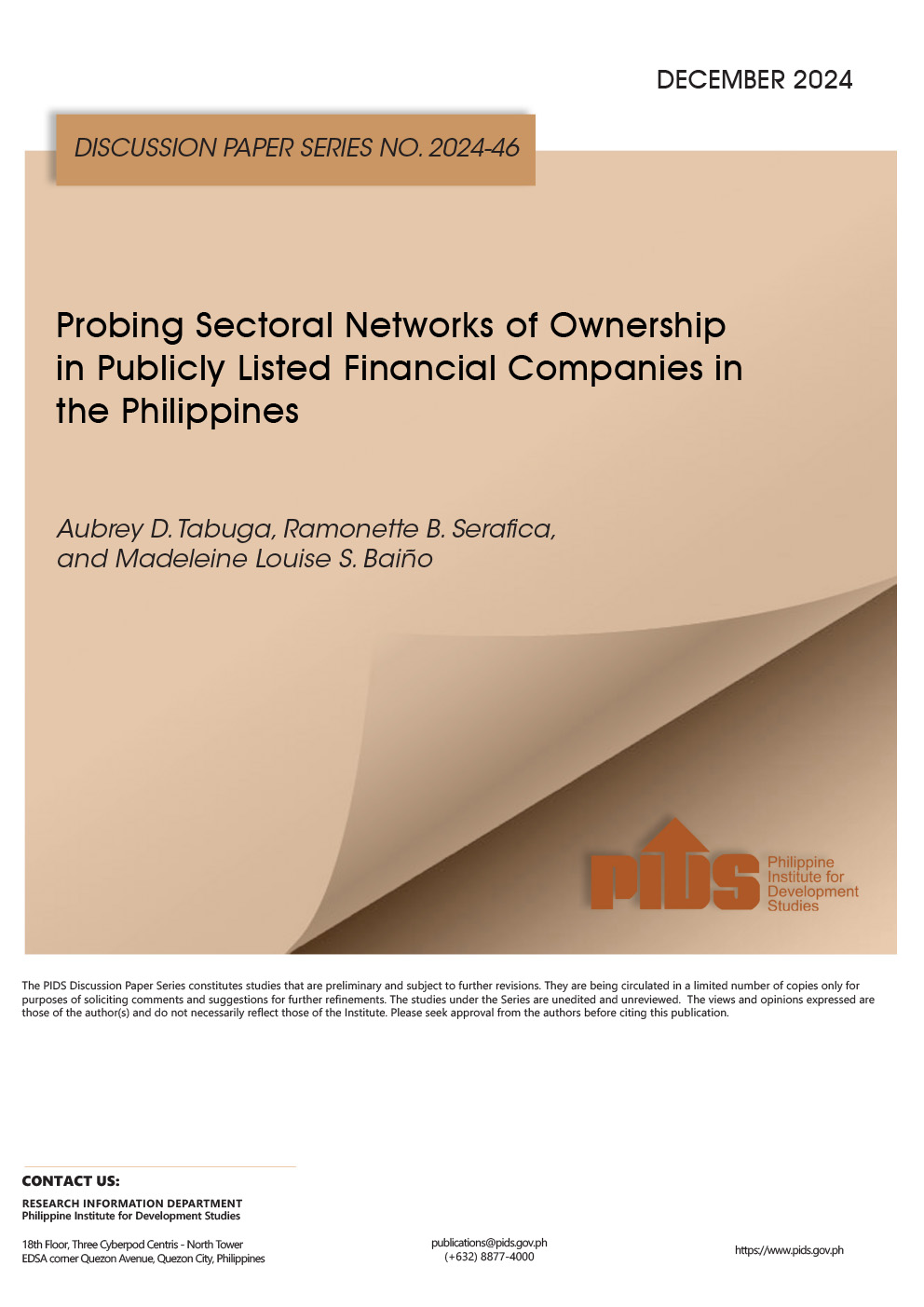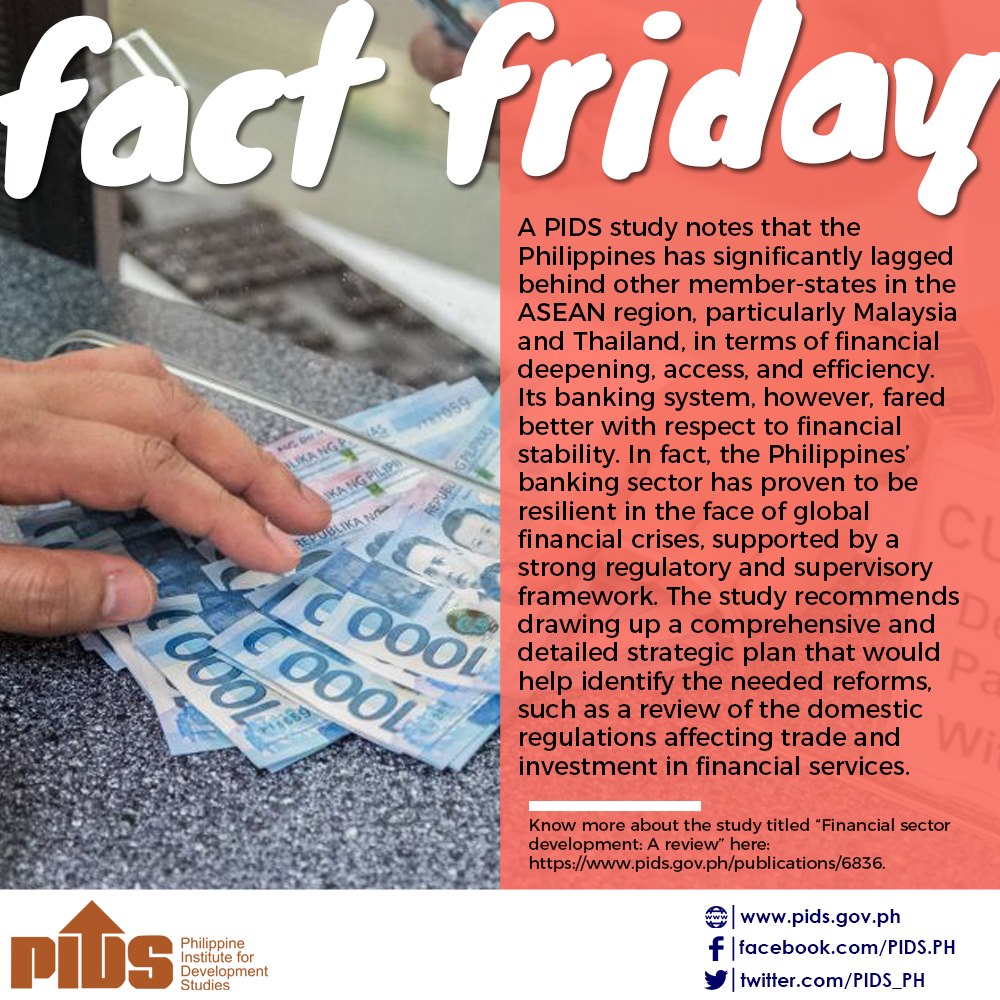This paper looks at the issue of reforming financial regulatory structures from the New Institutional Economics perspective. In particular, it examines how the broader institutional environment prevailing in developing countries like the Philippines may affect the institutional arrangements for financial regulation, and how these might be taken into consideration when designing or reforming financial regulatory structures. The paper argues that the state of financial conglomerates in the Philippines does not warrant a shift toward integrated financial supervision. Instead, any effort to reform the financial supervisory structure must explicitly address the country’s most fundamental need, which is to strengthen institutions and governance structures. Key institutional characteristics must already be in place to undertake such a reform successfully, including sound political and legal systems and enforcement mechanisms. That being said, properly structured independent regulatory agencies in the financial sector can play a part in strengthening the overall regulatory environment.
Citations
This publication has been cited 2 times
- Pellerin, Sabrina, John R. Walter, and Patricia E. Wescott. 2009. The consolidation of financial market regulation: Pros, cons, and implications for the United States. Working Paper 09-08. Federal Reserve Bank of Richmond.
- Pellerin, Sabrina, John R. Walter, and Patricia E. Wescott. 2009. The consolidation of financial market regulation: Pros, cons, and implications for the United States. Economic Quarterly, 95(Spr), 121-160. Federal Reserve Bank of Richmond.













